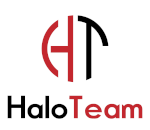Neta stared at the colored lamps on the ceiling. Her friends had invited her to a prestigious restaurant for her birthday, but this time, unlike the previous years, she wasn’t able to enjoy the food nor the company; her thoughts wandered elsewhere. There had been cases in the past where she had ‘taken work home’, but not to the level of the last couple of weeks. Though she is only 35 years old, it feels like the weight of the world is on her shoulders.
The challenging positions of the organization
Eleven years have passed since she finished her first university degree in human resources. It was a natural continuation of her role as an HR officer in Communications & IT Corps. Since then, her career progressed at an impressive pace. For three years she worked as a recruiter for a large company, two years as a welfare and training manager, four years acting as a senior executive in charge of head hunting, during which she focused on the challenging positions of the organization and worked closely with VPs and the CEO, and in the last two years as a VP of Human Resources in a successful and fast-growing company.
The job was not easy, there was constant pressure to recruit more and more employees. She repeatedly heard statements like, “bring in whoever you can, we’ll find something that they can do,” or, “the board is pressuring us to grow faster so that we can catch up with the competitors and capture the required market share.”
Indulgence increased and loyalty decreased
The department, under her leadership, recruited over 120 employees within two years, however, at the same time, saw the resignation of many employees who sought more attractive jobs in other companies. Neta and her friends in the Human Resources Managers Forum found themselves complaining time and time again about the pampering of the employees and the lack of loyalty to the organization, as well as about the challenge of preserving talents.
Despite all of this, she couldn’t complain. The welfare budget for each employee was impressive. Each year she organized at least one trip abroad for the employees and their families in addition to other extravagant parties throughout the year. On one of these occasions, she managed (in exchange for a significant fee) to arrange a filming crew from the leading commercial channel to cover the event, and the result was a color article shown on Friday’s prime time broadcasting. The message was clear – you work here not because of the salary (which is excessive by all means), nor for the technological challenge – but because we are a family. And a family’s job is to contain issues, such as the incessant grievances that she would hear from disgruntled employees, to offer care and support, and, most importantly, to ensure that everyone remains loyal family members and will not abandon their role in the middle of a project in favor of an opportunity with others whom they may mistakenly think will be a better family.
Market crash? It will never happen to us
When talk began in management meetings about the drop in the capital market and the fact that some companies had announced layoffs, it seemed to her a distant issue, the only implication being that it might be less difficult to recruit employees. Though, within just a couple of weeks, the small wave became a giant tsunami that washed away everything in its path, reaching Neta as well. The board instructed the company to stop recruiting and to instead present expenses cut plan. The IPO which was planned for early 2023 was postponed to an unannounced date, and the central message shifted from a focus on “time to market” to “cash is king”. Ultimately, the money had to last for two years, and the company had to reach profitability in the next quarter.
Like others, she read quite a bit about the 2000 dot com bubble burst, and even remembered lectures at the university during the 2008 subprime crisis. While those cases were just theoretical, she now experienced the crisis firsthand.
How do you deal with an organization in crisis?
Until now, all she had known was unlimited recruitment and welfare budgets, but suddenly she had to deal with the melancholic employees in the corridors and rumors of layoffs, which she had a hard time denying, as she was simultaneously going over the of possible layoff lists, preparing retirement packages and procedures for hearing meetings. She told her spouse that she felt like she had gone from 24 flavors of ice cream to 24 flavors of tissue. It was clear that the layoffs wouldn’t spare her human resources department.
When she suggested the idea of global salary cuts instead of layoffs to the CEO, he refused to listen. According to him, this would not have the needed effect on the company’s financial reports, nor would it last long because it would not match the salaries offered by other companies in the market.
Neta did not find her place; most of the activities that filled her time such as ticking off recruitments and pampering employees became irrelevant. She was confused. What was she supposed to do?
What is her position in front of the employees and what is her position in front of the managers?
How was she supposed to help the VPs, who must lead their people in the face of uncertainty and cutbacks, and still manage timely deliveries of high-quality products? How do they prevent talented people from fleeing to one of the giant companies that recruit with attractive salaries out of fear for the company’s stability? And no less important – what could fuel her now? How could she transform from a passive state to an active one and lead moves within the company that help them get through this difficult period?

The loneliness of senior positions
She was lonely. Everyone came to cry on her shoulder, but she had no one to share her feelings with, debate or even just be herself for a moment. She urgently needed someone experienced to talk to, someone from the outside of her company who could offer insight based on experience from the previous waves of 2000 and 2008 to give her an objective point of view without emotional charges.






